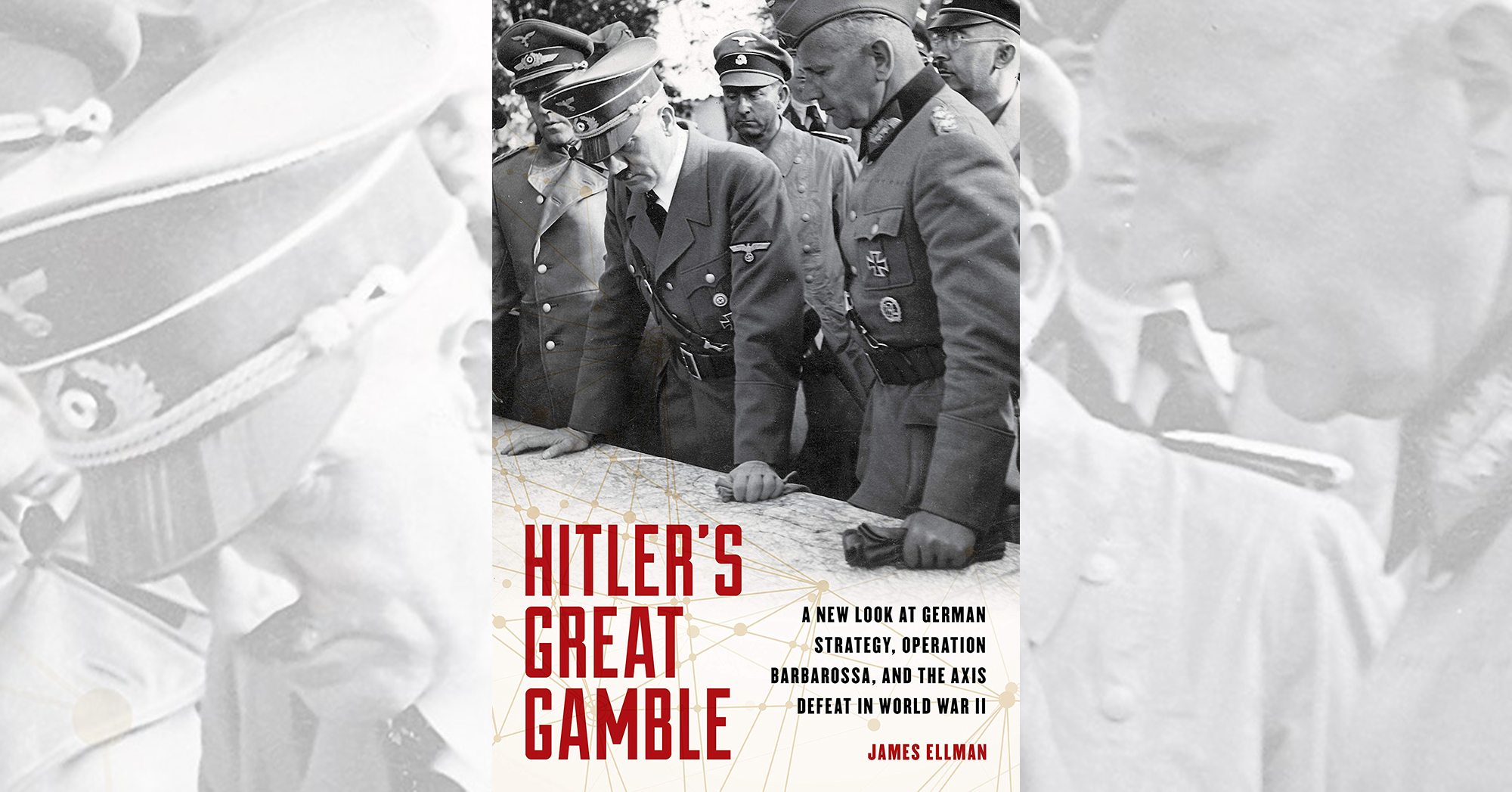Hitler’s Great Gamble: A New Look at German Strategy, Operation Barbarossa and the Axis Defeat in World War II, by James Ellman, Stackpole Books, Guilford, Conn., 2019, $34.95
What if Napoléon had B-17 Flying Fortresses at his disposal? What if Columbus had submarines? Counterfactual history has a deservedly gnarly reputation in scholarly quarters for its simple absurdity. That said, approached cautiously and analytically, such consideration of what Winston Churchill referred to as the “terrible ifs” of history can, in fact, be both illuminating and valuable.
Twenty years ago a New York publisher released What If? The World’s Foremost Military Historians Imagine What Might Have Been. Among other essays, Victor Davis Hanson proposed a Persian victory at Salamis, and Stephen Ambrose envisaged D-Day’s ultimate failure. Eminent military historians considering “what if” questions that provide insight into what did happen provide a brilliant illustration of meaningful counterfactual history.
Hitler’s Great Gamble falls into this category. Investment banker-cum-historian James Ellman contemplates the outcome of Operation Barbarossa had Adolf Hitler been a better diplomat. Specifically, the author argues that if Japan, already occupying the Korean peninsula, had turned north toward the Soviet Union, and Finland had participated in the assault on Leningrad, Barbarossa had the potential to actually succeed. Implicit is that the war was lost before it started, as a consequence of diplomatic failure. In this vein Ellman definitely overplays his hand, dismissing everyone from William L. Shirer to Sir Ian Kershaw as dunderheads for suggesting otherwise.
It is problematic to suggest that Hitler, possessed of a growing sense of invincibility, had the potential to be an honest broker and candid partner. Or that imperial Japan was interested in German war aims or grand strategy. Still, Ellman’s unique if eccentric thesis does offer insight into why Barbarossa was Hitler’s best option. Had the Führer been a better diplomat, he would never have found himself in the tenuous position where such a “great gamble” was his best option.
—Bob Gordon
This article was published in the March 2020 issue of Military History.





